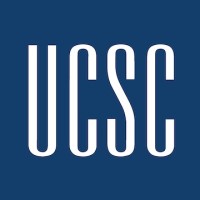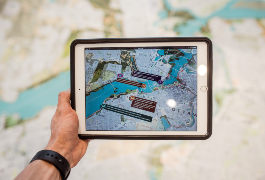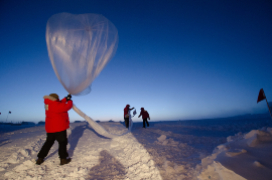Minor in Sustainability Studies
UC Santa Cruz
Santa Cruz, CA
The rapidly growing and linked ecological and social crises arising from stresses on supplies of energy, water, food, land use and other natural resources are among the most critical societal challenges of the next 50 years. These crises are not simply about the adequacy of supply relative to demand; they are also the result of the complex social relations within and among societies, in the past, present, and future. Sustainability is not a fixed state that can be achieved once and maintained. Creative solutions for socio-ecological problems require ever-evolving adaptive approaches and robust interdisciplinary collaborations among engineers, social scientists, economists, policy makers, artists and natural scientists. College graduates will need to be flexible and responsive, able to learn new knowledge and skills rapidly, and cognizant of the complex organization of society and technology. The minor in sustainability studies administered by Rachel Carson College takes a “learning by doing” approach to prepare students as change-makers equipped with professional conduct, analytic abilities, a global perspective and practical know-how.
The pedagogical underpinnings of this minor are anchored in design as a creative process and premised on relationships between classroom learning, character development, non-violent communication, community engagement, and technical innovation through research and application. Broad interdisciplinarity and individual grounding in STEM, social sciences and the arts are critical elements at the center of the minor’s core courses. The curriculum is therefore structured to 1) facilitate interdisciplinary academic and research collaborations among faculty and students across multiple UC Santa Cruz divisions (drawing on but outside of the divisional structure) and in the off-campus community; 2) teach and train students in ecology and sustainability for regenerative design thinking, entrepreneurship and impact assessment in the built and natural environment; 3) integrate the use of science, technology, engineering, art and mathematics (STEAM) skills and social science knowledge to these ends; and 4) meet undergraduate demand for a sustainability curriculum with focuses distinct from those offered in existing UCSC departments.
The program is designed to graduate students who can think past mere technology-based solutions to design and implement disruptive innovations that challenge the existing paradigm and invite regenerative systems that support our demands for energy, food, water, mobility and shelter by cultivating mutually beneficial relationships. Students are introduced to concepts and topics such as living-system and cradle-to-cradle design, life-cycle analysis, waste management, coastal and marine conservation, and natural resource management. During the program, students will design and participate in service-learning projects in collaboration with on- and off-campus units, agencies, and organizations; and apply the knowledge and skills acquired through the minor.
No specific prior preparation or prerequisites are required for entry to the minor.
Program learning objectives are as follows:
✔ Demonstrate whole system awareness with the ability to identify and understand interconnectedness (intersecting, related and/or connected systems; synergies and rebound effects) and how all human-made designs rely upon and are embedded within nested ecological systems.
✔ Demonstrate awareness that a design is a system, that users interact with designs and that designs and users are embedded in higher level systems that include environmental ecosystems and the life they sustain.
✔ Demonstrate knowledge and understanding of whole life-cycle and closed-loop systems thinking as related to the impact of mitigation work (e.g., understanding of life-cycle burdens of design alternatives).
✔ Comprehend and apply understanding of the causes, features, data, complexities, policies, and practices giving rise to and needed to address a perceived crisis in the contemporary global socioecological context including the role of production, consumption, politics, policies, markets and human behavior in this crisis.
✔ Show proficiency in applying basic STEM skills needed for evaluation and design practices in real-world applications including quantitative and qualitative metrics for impact and risk assessments and a selection of software and hardware-specific skills (e.g.. computer animated design, 3D printing, Arduino programming etc.) Use cognizance of appropriate social science knowledge/methods and entrepreneurial practices to design and implement social enterprise and service learning projects in sustainability and ecological design and practice.
✔ Demonstrate the ability to forecast the near- and long-term costs and value of their work to the environment and society through the efficient use of resources (e.g., efficient for whom?) and socially/culturally responsible engagement with stakeholders.
✔ Show awareness of risks and opportunities related to changing environments and stakeholder interests on their work (e.g., extended costs, value, trade-offs, partnerships, regulations, policies, etc.).
✔ Demonstrate the ability to identify relevant cultural implications and influences in the context of their work (e.g., cultural expressions and sensitivities, services and goods procurement, heritage site appreciation) as well as equity awareness (e.g., gender, race, ethnicity, class, etc.).
✔ Feel familiar with ways to create robust, dynamic, and resilient systems and ways to develop transdisciplinary stakeholder networks.
✔ Understand ethical implications relative to social impact of their work.








